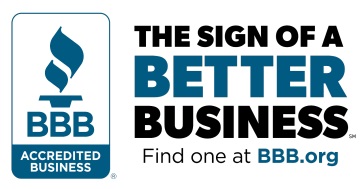
Special to IFN
Since 2021, identity and information theft reports to BBB Scam Tracker SM have totaled more than 16,600 and monetary losses are rising, according to a new study by the Better Business Bureau’s International Investigations Initiative.
Nearly every scam involves some sort of information theft, and scam survivors who lost money may not realize their personal information has also been compromised. Reports to BBB indicate that the landscape of identity theft is changing with the widespread adoption of AI tools and dark websites that allow sales of stolen information.
The new study, “AI tools and dark web power identity theft,” examines patterns of reports, reviews the amount of money lost and shares stories from those caught up in the scams so the public can avoid them.
Key Findings
● Identity and information theft are a part of nearly every other scam, and it is nearly impossible to keep all sensitive information safe.
● Fraudsters target information that allows them to impersonate people or create fake identities for
additional scams, including passwords, bank routing numbers, Social Security Numbers and even social
media profiles.
● Dozens of websites on the internet and dark web allow the sale of stolen information.
● Scammers trade tips on how to evade law enforcement, share new techniques to steal information and sell data to one another.
Identity and information theft scam reports across North America (2022-2024)
● 16,667 – BBB Scam Tracker
● 4,713,627 – Federal Trade Commission’s Consumer Sentinel Network
● 40,639 – Canadian Anti-Fraud Centre
Scam Survivor Stories
Sherease, who lives in North Carolina, was contacted and offered a job in late March. Once she started completing tasks, the scammers continued to ask for money to complete additional tasks. She was promised by the customer service representative that after she deposited the last amount of money asked for, she would be able to withdraw her funds. Since then, the scammers have been contacting her via WhatsApp trying to get her to deposit more money to cover the last task in the amount of nearly $9,000. The scammers even went as far as telling Sherease to get the money from a loan shark. Unfortunately, Sharease lost more than $3,000 and has been unsuccessful in recuperating her funds.
Ricky, another North Carolinian, said that scammers hacked into his internet and used his personal information to take grants and loans out in his name.
What are the signs of identity theft?
● Misspelled website URLs;
● Suspicious links or attachments in unexpected emails;
● Websites with low quality design;
● Texts from unknown sources; and
● Unexpected messages on social media
How can I protect myself from identity theft?
● Secure your personal information. Usernames, passwords, bank accounts and Social Security Numbers are just a few of the personal pieces of information you should be very wary about showing to anyone but fully trusted sources.
● Monitor your accounts. Information theft is incredibly hard to avoid. Regularly checking your credit report and financial accounts can help you catch fraud in the earliest stages before costly scams occur.
● Use strong passwords and multi-factor authentication. Experts agree that multi-factor authentication is one of the best ways to safeguard your accounts. While it may add a step when you log in, it can make your most sensitive accounts nearly impenetrable to all but the most cunning scammers.
● Protect your financial identity. If you don’t need to open any new credit accounts soon, freezing your credit can stop scammers from ever getting the chance to use stolen information. Setting up fraud alerts can help you cut off scammers’ attempts before any damage is done.
For over a decade, BBB’s International Investigations Initiative has advocated for an ethical marketplace by conducting deep-dive research on the riskiest and most common scams reported across North America.
LEARN MORE
♦ Visit BBB.org/scamstudies for more on information theft and other scams.
♦ Visit BBB.org to check out a business or register a complaint and BBB Scam Tracker to report a scam.



